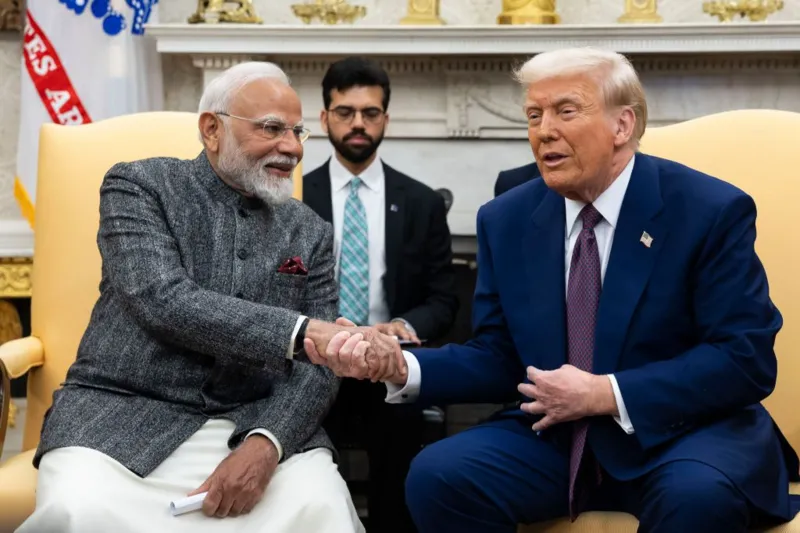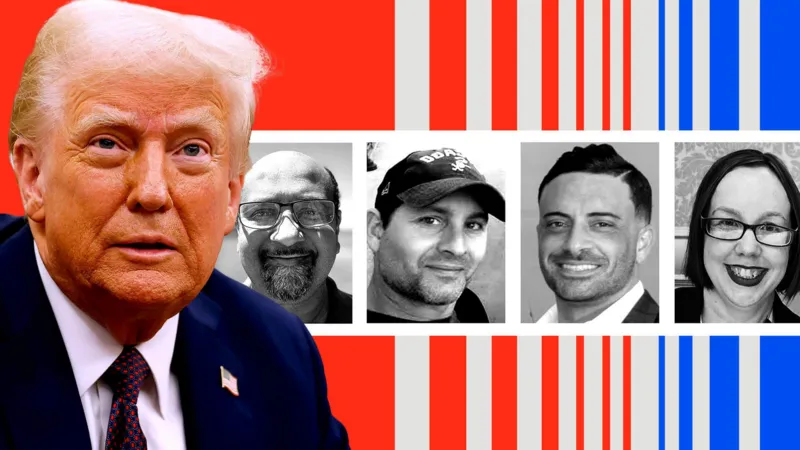Why Modi doesn’t want India to watch BBC film on Gujarat carnage
India has used emergency powers to block the airing of the documentary that questions PM Narendra Modi’s role in the 2002 riots.

India’s right-wing government has used emergency powers to block the airing of a BBC documentary which questions Prime Minister Narendra Modi’s leadership during the 2002 Gujarat riots.
Calling the two-part BBC film, India: The Modi Question, a “propaganda piece”, the government ordered Twitter to take down more than 50 tweets linking to the documentary while YouTube was instructed to block any video uploads.
A screening of the documentary at one of India’s premier universities on Tuesday was disrupted by the authorities, who allegedly cut the power and internet lines to the office of the students’ union which had organised the event. India media reports said stones were thrown at students watching the film.
Similar screenings were also reported from other parts of the country, while opposition leaders, journalists and activists continue to share links to the BBC documentary on social media to defy the government order.
What happened in Gujarat in 2002?
In late 2001, Modi was appointed chief minister of India’s Gujarat state to resolve infighting in the Bharatiya Janata Party (BJP).
Until then, he was a prominent member of the Rashtriya Swayamsevak Sangh (RSS), the BJP’s far-right ideological mentor founded in 1925 along the lines of the then European fascist parties. The RSS aims to create an ethnic Hindu state in India where its 200 million Muslims will be second-class citizens.
In February 2002, a train – with many Hindu pilgrims returning home from the temple town of Ayodhya in Uttar Pradesh state – caught fire, killing 59 people. While the state government led by Modi alleged Muslim vendors at Godhra station burned the train, a 2006 report by a committee appointed by the federal government concluded the fire was accidental.
As soon as the news of the Godhra incident spread, Hindu mobs began to rampage through Muslim neighbourhoods across Gujarat. More than 2,000 people, most of them Muslims, were killed and dozens of women raped in what turned out to be one of the worst religious massacres in India’s history, turning Gujarat into one of India’s most religiously polarised states.
Many foreign governments, including the United Kingdom, stopped engaging with Modi at that time, while the United States imposed a travel ban on him.
But the carnage also earned Modi the epithet of “Hindu Hridaysamrat” (the ruler of Hindu hearts) and catapulted his stature within the RSS and the BJP. He continued to govern Gujarat till 2014, the year he moved to New Delhi to take over as India’s 15th prime minister.
What is the BBC film about?
The 59-minute documentary alleges that Modi, who was chief minister of Gujarat at the time, ordered the police to turn a blind eye to the violence that went on for days.
The film cites a previously classified British foreign ministry report quoting unnamed sources saying that Modi met senior police officers and “ordered them not to intervene” in the attacks on Muslims.
It also said the violence was “politically motivated” and the aim “was to purge Muslims from Hindu areas”.
The riots were impossible “without the climate of impunity created by the state government … Narendra Modi is directly responsible”, it concluded.
In a statement that BBC released following India’s orders to ban the film, it said the documentary was “rigorously researched according to highest editorial standards”.
“The documentary series examines the tensions between India’s Hindu majority and Muslim minority and explores the politics of India’s PM Narendra Modi in relation to those tensions. This has been the source of considerable reporting and interest both in India and across the world in recent years,” it said.
The British broadcaster said it used a “wide range of voices, witnesses and experts” for the film, including “responses from people in the BJP”.
“We offered the Indian government a right to reply to the matters raised in the series – it declined to respond,” it said.
Why Modi wishes the film is not seen
Modi has repeatedly denied accusations that he failed to stop the rioting in Gujarat.
A special investigation team appointed by the Supreme Court to investigate the role of Modi and others in the violence said in a 541-page report in 2012 that it could find no evidence to prosecute the then-chief minister.
The next year, Modi was named the BJP’s candidate for prime minister. He won the 2014 general elections and returned in 2019 with a bigger majority in parliament.
Since 2014, Modi’s BJP – and other right-wing groups affiliated with the RSS – have intensified their Hindu supremacist campaign mainly targeting the country’s Muslims, its biggest minority.
Therefore, a ban on a film on the Gujarat riots by a reputed foreign media organisation is only consistent with the government’s attempts to reject any criticism of its agenda.
Modi’s supporters on social media are calling the BBC documentary a “colonial” and “white” propaganda.
“The bias and lack of objectivity and frankly continuing colonial mindset are blatantly visible,” Arindam Bagchi, India’s foreign ministry spokesman, said at a news conference last week.
But Mohammad Sajjad, professor of history at India’s Aligarh Muslim University, told Al Jazeera he is “surprised as to why shouldn’t Modi want Indians to watch” the BBC film.
“After all, the federal home minister had issued a statement saying that Muslims were taught a lesson in Gujarat in 2002,” he said, calling the government ban “a baffling contradiction”.
“Yet, given that Modi is really peeved at the BBC documentary, the only plausible reason could be that he wants to make up a certain kind of image before the world.”
What have been the reactions to India’s ban?
“Wounds heal and human rights obligations are met when there is a true commitment to justice and reform. Instead, BJP supporters have honoured men convicted of gang rape and murder in the 2002 riots,” the Human Rights Watch (HRW) said in a statement on Monday.
The rights group said the BJP’s ideology has “infiltrated the justice system and the media, empowering party supporters to threaten, harass, and attack religious minorities, particularly Muslims, with impunity”.
HRW said since Modi became the prime minister in 2014, “Indian officials and BJP supporters have worked hard to amend his image”.
“Internationally, Indian diplomats push back aggressively at any criticism of Modi’s involvement in serious human rights abuses,” it added.
The HRW statement said Modi has “sought to direct international engagement with India around development and strategic partnerships”.
“But India’s image would be better served if the authorities made greater effort protecting the rights of all Indians – and the rights of those wanting to bring these issues to public attention,” it added.
Modi’s government used emergency powers under its information technology laws to block the BBC documentary and its clips from being shared on social media.
The order “flagrantly contradicts the country’s stated commitment to democratic ideals”, the Committee to Protect Journalists said in a statement on Monday.
But academic Sajjad thinks the documentary imbroglio will help the BJP “get a reiterated and renewed consolidation of ‘Hindu’ support to it”.
-al jazeera






